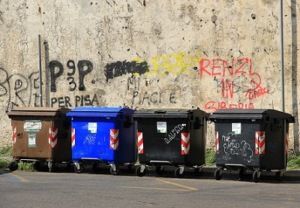News
Household waste collection should be standardised country-wide
This article is more than 6 years old.
New findings reveal that there is a big difference in how household rubbish is being collected and sorted across Denmark

Different ways of sorting rubbish confuse people and make it harder for recyling companies (photo: pxhere)
There are almost as many ways to collect rubbish in Denmark as there are municipalities.
Environment and food minister Jakob Ellemann-Jensen wants to ensure that more rubbish is recycled by making sure it is collected and sorted the same way everywhere in the country.
READ ALSO: Copenhagen aims to recycle 70 percent of all waste by 2024
For example, most municipalities sort plastic waste. But there are six different ways governing where and how you should discard it. Some municipalities have their own bins for plastic waste, while others put it in the same bin as metal waste.
Hard or soft – or both?
To add to the confusion, some municipalities only sort out hard plastic while others sort both soft and hard plastic waste.
People are also in doubt as to how to sort their rubbish depending on whether they are at home, at a summer house or visiting someone.
It is also annoying for the recycling companies who buy and sort the rubbish because they miss out on economies of scale.
New standards
Together with a number of interest organisations, the ministry is currently engaged in working out a set of common standards and sorting criteria for the municipalities.
“Our goal is that every municipality will embrace the new standards and implement them over the next few years. This would also be a great help to those companies who specialise in recycling waste and in this way, help the environment,” added Ellemann-Jensen.
Bin-men back
In other related news, garbage collectors striking since last Thursday in Copenhagen, Frederiksberg, Dragør and Tårnby over wages have returned to work today following an agreement.










































